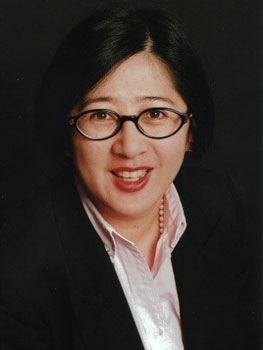Concerned About Your Skin, Hair Or Nails?

The A-Z of Your Skin
Often our self-confidence is affected by a visible health condition; but it doesn't necessarily have to be.
The Australasian College of Dermatologists offer educated information, treatment and compassionate support to minimise the strain of skin conditions.
Dermatologists study for an extra four years to specialise in this area which enables them to provide preventative advice, as well as offer treatment plans especially if you're already experiencing issues.
In regards to treatment, Dermatologists combine cutting edge science with proven medical, surgical and laser treatments to give the highest chance of treating your skin situation.
Visit your GP today to ask for a referral to a Dermatologist to reduce the stress you may feel with an uncomfortable skin, hair or nail worry.
To learn more about the A-Z of your skin and the expertise of a Dermatologist, head to the Australasian College of Dermatologists website at www.dermcoll.edu.au or www.facebook.com/australasiancollegeofdermatologists/
Interview with Dr Jo-Ann See, Dermatologist
Question: Can you talk us through how visible skin conditions affect self-confidence?
Dr Jo-Ann See: Young people with visible skin conditions can develop a lack of self-confidence which may lead to social avoidance or withdrawal. Onlookers can often see these skin conditions and it can be hard to cover them up. This is particularly hard for boys as they can't even cover it up with makeup. As dermatologists, we find a lack of self-esteem is very common. Young people tell us that it can make them feel like they don't want to interact, go to school or attend social functions with their friends.
Nowadays, Instagram, and photoshopped images in magazines make young people think that they aren't perfect and so they are always striving to be something else.
This is particularly an issue coming into summer when you have more skin on show and have to start thinking about the clothes you're wearing and how you can cover up any skin conditions you might have.
Question: How do you work with a patient who is experiencing confidence issues due to their skin, hair or nail condition?
Dr Jo-Ann See: You've really got to explain what condition they've got and give them reassurance that most things are treatable within a time frame.
There is very often a safe and effective treatment and dermatologists are always aiming for clearance so that the skin condition is no longer an issue.
We want to make young people feel like it's possible that they can look fantastic again. Often they have read online that the skin condition they have is untreatable and they feel very down about it. But I can explain that I'm a specialist, I've more than likely seen their condition before, and that it can be fixed.
 Question: What types of treatment options are there for embarrassing skin conditions such as acne, scarring and birth marks?
Question: What types of treatment options are there for embarrassing skin conditions such as acne, scarring and birth marks? Dr Jo-Ann See: There are many different treatment options for skin conditions from creams to tablets to chemical peels. Birth marks are harder to treat but vascular birth marks are fairly common and treatable with laser. For scarring, it depends where it is. As dermatologists we always want to avoid scarring and will come up with a personalised treatment plan based on exactly what issue there is and the age of someone.
Question: What hair conditions do Dermatologists typically deal with and how?
Dr Jo-Ann See: With hair conditions, we tend to deal with people who have too much or too little.
Some young women may struggle with an increased amount of facial hair but there are tablets available which block hair growth. Hair removal can also be done by laser if required.
Hair loss is a significant problem and young girls may end up with patchy hair, often noticed by their hairdresser initially. Hair loss can be associated with stress, so it's important to identify if this is the case. This may be emotional stress from a boyfriend break up or from being bullied at school. Treatment options include injecting steroids or using a cream. The Australasian College of Dermatologists' can provide expert advice about all of these types of skin, hair and nail conditions.
Question: Are you able to explain how laser is used as a treatment for skin and nail conditions?
Dr Jo-Ann See: We don't often use laser for nail conditions but it has been used more recently for fungal nail problems. However, it is new in this area and it often doesn't work. For skin, laser can be used for rejuvenation and for scarring and dermatologists have really pioneered the use of this technique. The technology is getting better and better and it's really like comparing having HD now, to a crackling old black and white TV before.
Question: What options do you provide to patients with acne?
Dr Jo-Ann See: Dermatologists see a lot of acne in young people but it's crucial to create an individualised treatment plan. Genetics, hormones and stress can all contribute to making your acne worse. Even the type of cosmetics you wear can have an impact.
There is a balance between giving treatment a bit of time to work but not too much so if it's not working, you can change it. There are lots of safe and effective treatments out there and after a slow period of innovation in this area, there are some very recent new treatments which can help manage your acne.
Acne is extremely common in teenagers so it's important to know that there isn't anything wrong with you and you shouldn't feel embarrassed about going to your doctor for help. Your GP may refer you to a dermatologist and they will find the right way of managing it for you.
Question: Can you provide us with some information on new and up-coming skin treatments?
Dr Jo-Ann See: There are new treatments appearing all the time and dermatologists always have their finger on the pulse. They are specialists in this area and are leading the way in innovation to provide the best possible solution for their patients.
It's important to remember that you can do other things to help your skin like eating well, doing plenty of exercise and staying away from smoking and alcohol. It's also crucial for young people to stay out of the sun so their skin isn't damaged by UV rays over time.
Question: What is involved in the process of seeing a Dermatologist?
Dr Jo-Ann See: The best way to see a dermatologist is by booking an appointment with your local GP to discuss any issues in the first instance, and then they will refer you to a dermatologist for any further specialist care you might need.
To learn more about the A-Z of your skin and the expertise of a Dermatologist, head to the Australasian College of Dermatologists website at www.dermcoll.edu.au or www.facebook.com/australasiancollegeofdermatologists/
MORE





